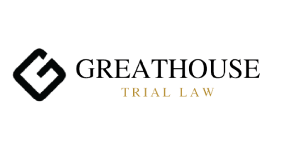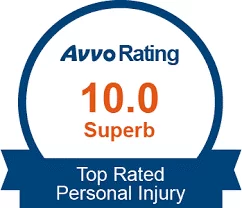Truck accidents, unfortunately, occur all too frequently, leaving a trail of devastation in their wake. These incidents pose a significant threat on our roads, causing physical and emotional trauma, and often leading to substantial financial burdens for victims and their families. While the specific causes of each accident may vary, the consequences can be life-altering due to the size of these commercial vehicles.
If you’ve been involved in a Georgia truck accident, navigating the legal landscape can be overwhelming. While a previous blog outlined the crucial initial steps to take after an accident, this blog delves into the complexities of the legal system, including identifying potentially liable parties, building a strong case and the importance of seeking experienced legal counsel to protect your rights and maximize your potential compensation.
Remember, you’re not alone in facing the aftermath of a truck accident. Greathouse Trial Law in Atlanta is ready to assist. Reach out to us at (678) 310-2827 to schedule your free consultation with an Atlanta truck accident lawyer.
Understanding the Legal System
Personal Injury Law and Negligence
Personal injury law applies to situations where another party’s negligence or wrongdoing causes you harm. Negligence encompasses various forms, including carelessness, recklessness, and intentional misconduct. In the context of truck accidents, negligence could involve the truck driver’s actions, such as speeding, distracted driving, or failing to yield the right of way. Additionally, the trucking company could be negligent for failing to properly maintain the vehicle, and the manufacturer could be liable for defective parts that contributed to the accident.
Comparative Negligence in Georgia
Georgia follows a modified comparative negligence system. This means that even if you were partially at fault for the accident, you can still recover compensation as long as your share of the blame is less than 50%. The percentage of fault attributed to you will directly impact the amount of compensation you receive. For example, if you are found 20% at fault, your total compensation will be reduced by 20%.
Key Players in the Legal Process
Throughout your legal journey, you will encounter various parties:
- Your Lawyer: An experienced Atlanta truck accident lawyer acts as your advocate and advisor. They handle various tasks, including investigating your case, gathering evidence, negotiating with insurance companies on your behalf, and representing you in court if necessary.
- Insurance Companies: Multiple insurance companies might be involved, including your own insurance company, the truck driver’s insurance company, and the trucking company’s insurance company. Each company has its own interests and may attempt to minimize their payouts.
- Adjusters: Insurance companies often employ adjusters to investigate claims and make settlement offers. It’s crucial to avoid accepting any offer without consulting your lawyer as they can ensure the offer reflects the full value of your claim.
Key Legal Considerations
Identifying Potentially Liable Parties
Determining fault in a truck accident goes beyond simply blaming the driver. While driver negligence is a common factor, other parties may share responsibility depending on the specific circumstances. Here are some potential parties who could be liable:
- Trucking Companies: They are responsible for ensuring their vehicles are properly maintained, drivers are qualified and well-rested, and company policies are followed. If any of these factors contribute to the accident, the trucking company could be held liable.
- Parts Manufacturers: If a defective part, such as brakes, tires, or steering components, malfunctions and causes the accident, the manufacturer of that part could be liable.
- Maintenance Providers: If a mechanic or service company negligently repairs or maintains the truck, leading to an accident, they could be held responsible.
- Loading Companies: Improperly loaded cargo can significantly impact a truck’s stability and handling, potentially causing an accident. The company responsible for loading the cargo could be liable if their negligence contributes to the crash.
- Government Agencies: In rare cases, poorly maintained roads or faulty traffic signals might contribute to a truck accident. Depending on the specific circumstances, a government agency could be held partially liable.
Building a Strong Case
Gathering comprehensive evidence is essential for establishing a strong claim and maximizing your potential compensation. Here are some key elements to focus on:
- Police Report: Secure a copy of the official police report, which details the accident scene, witness statements, and preliminary findings.
- Medical Records: Obtain detailed medical records documenting your injuries, diagnosis, treatment plan, and prognosis. This helps establish the extent and severity of your injuries.
- Witness Statements: If any witnesses observed the accident, collect their written statements or contact information. Their testimonies can provide valuable insights into the events leading up to the crash.
- Accident Scene Documentation: Thoroughly document the accident scene with photographs and videos from various angles. Capture details like vehicle damage, skid marks, road conditions, and surrounding landmarks.
- Other Relevant Evidence: Depending on the specific case, additional evidence might be crucial, such as truck maintenance records, driver logs, or cell phone data if distracted driving is suspected.
Negotiation and Settlement
Insurance companies often attempt to settle claims outside of court to avoid the complexities and costs of litigation. While a quicker resolution might be appealing, it’s crucial to understand the full value of your claim before accepting any offer. This includes:
- Medical Expenses: Past and future medical costs associated with your injuries, including hospital bills, doctor fees, medication, and rehabilitation.
- Lost Wages: Compensation for income lost due to your injuries and inability to work.
- Reduced Earning Capacity: If your injuries permanently impact your ability to earn a living, you may be entitled to compensation for future lost wages.
- Property Damage: Reimbursement for any damage to your vehicle or other personal property involved in the accident.
- Pain and Suffering: Compensation for the physical and emotional pain and suffering caused by the accident.
- Wrongful Death: If the accident resulted in a fatality, surviving family members may be entitled to compensation for various losses, including funeral and burial expenses, lost financial support, and emotional distress.
An experienced lawyer can assess the full scope of your damages, negotiate aggressively with insurance companies on your behalf, and ensure you receive a fair settlement that reflects the true value of your claim.
Litigation
If a settlement cannot be reached through negotiation, taking your case to court may become necessary. This process involves filing a lawsuit, presenting evidence in court, and arguing your case before a judge or jury. The complexities of litigation highlight the importance of seeking legal representation from a truck accident attorney in Atlanta who can:
- Navigate the legal system efficiently and effectively
- Develop a strong legal strategy to maximize your chances of success
- Present your case persuasively in court
- Fight for your rights and ensure you receive the maximum compensation for your injuries
Remember, this information provides a general overview, and consulting with a qualified truck accident lawyer is essential for understanding your specific situation and exploring the best course of action.
Get Started on Your Path to Recovery: Schedule Your Free Consultation with Greathouse Trial Law
Navigating the legal complexities after a Georgia truck accident can feel daunting, but you don’t have to go through this alone. At Greathouse Trial Law, we understand the physical, emotional, and financial burdens you face. Our dedicated team is committed to providing compassionate and personalized legal representation throughout your claim. We will work tirelessly to investigate your case, identify all liable parties, and fight aggressively to secure the maximum compensation for your injuries.
Take control of your recovery. Contact Greathouse Trial Law today at (678) 310-2827 to schedule your free consultation with an injury attorney in Atlanta. If more convenient, you can also reach out to us by completing our online form. Remember, our experienced and compassionate legal team is here to fight for your rights and guide you through every step of your claim. Don’t face this alone. Let us help you navigate the legal complexities and maximize your potential compensation.
Copyright © 2024. Greathouse Trial Law, LLC. All rights reserved.
The information in this blog post (“post”) is provided for general informational purposes only and may not reflect the current law in your jurisdiction. No information in this post should be construed as legal advice from the individual author or the law firm, nor is it intended to be a substitute for legal counsel on any subject matter. No reader of this post should act or refrain from acting based on any information included in or accessible through this post without seeking the appropriate legal or other professional advice on the particular facts and circumstances at issue from a lawyer licensed in the recipient’s state, country, or other appropriate licensing jurisdiction.
Greathouse Trial Law, LLC
260 Peachtree Street NW
Suite 803
Atlanta, GA 30303
(678) 310-2827
https://www.atltriallaw.com/


